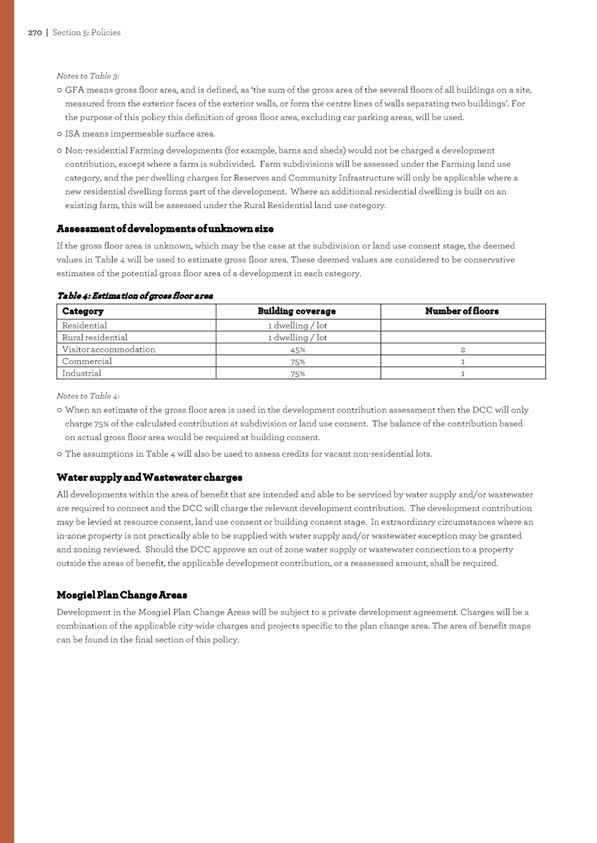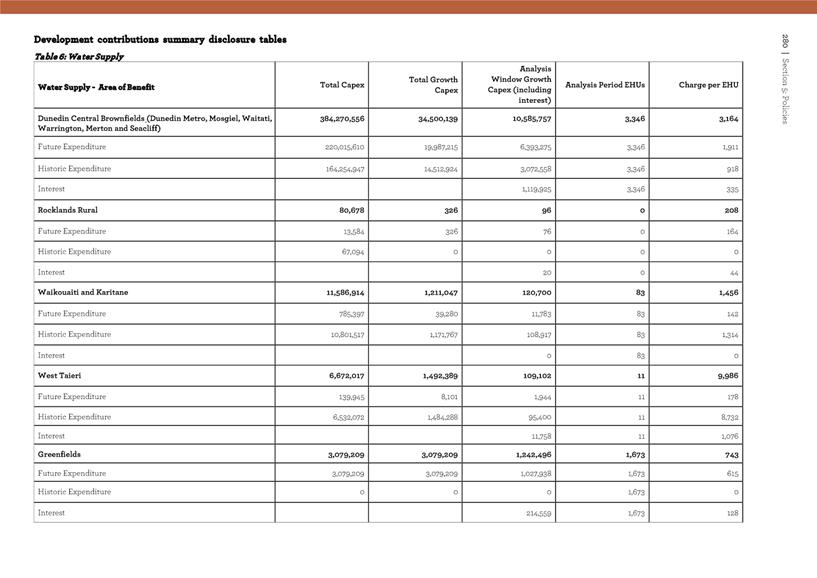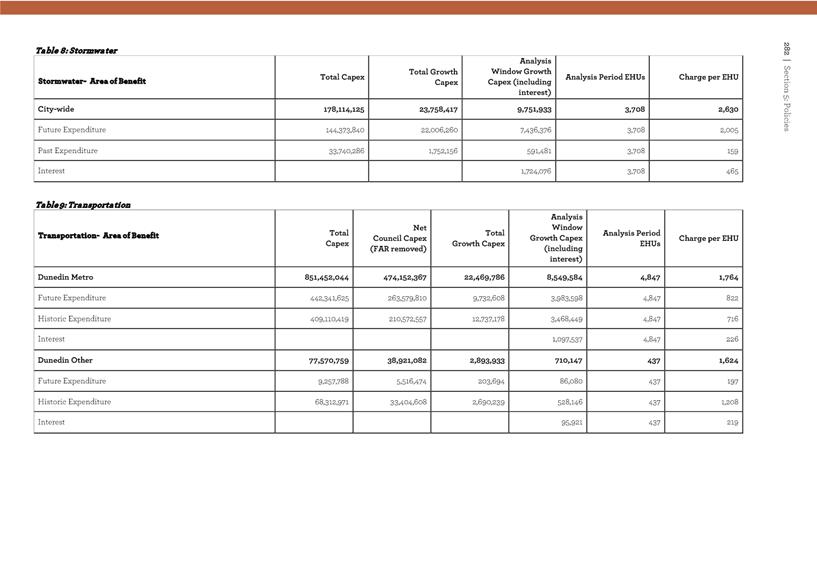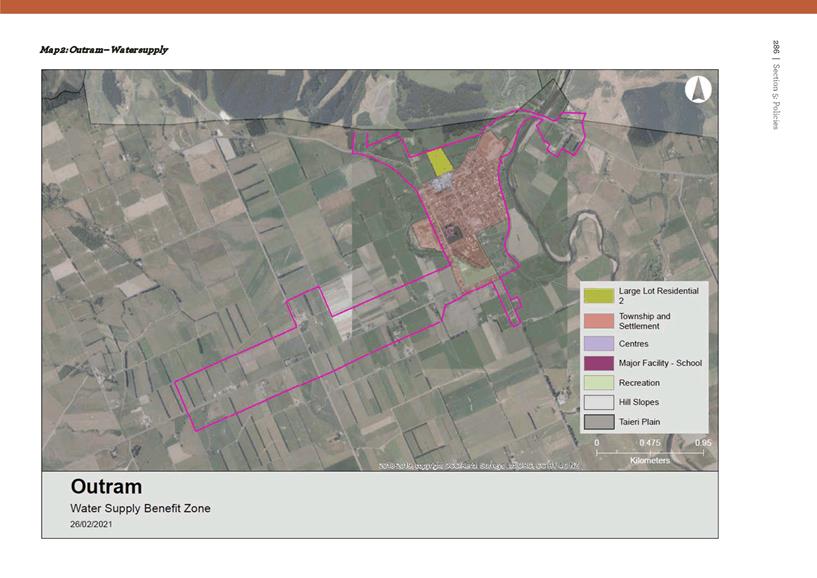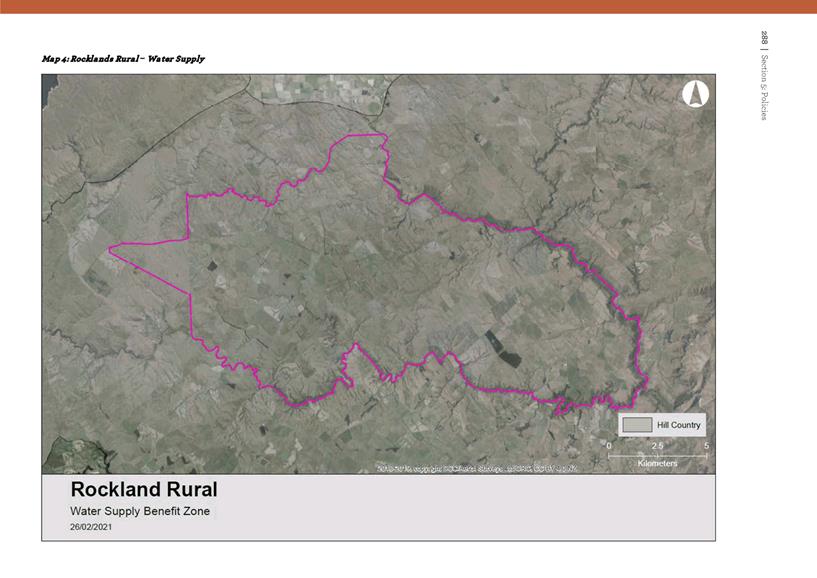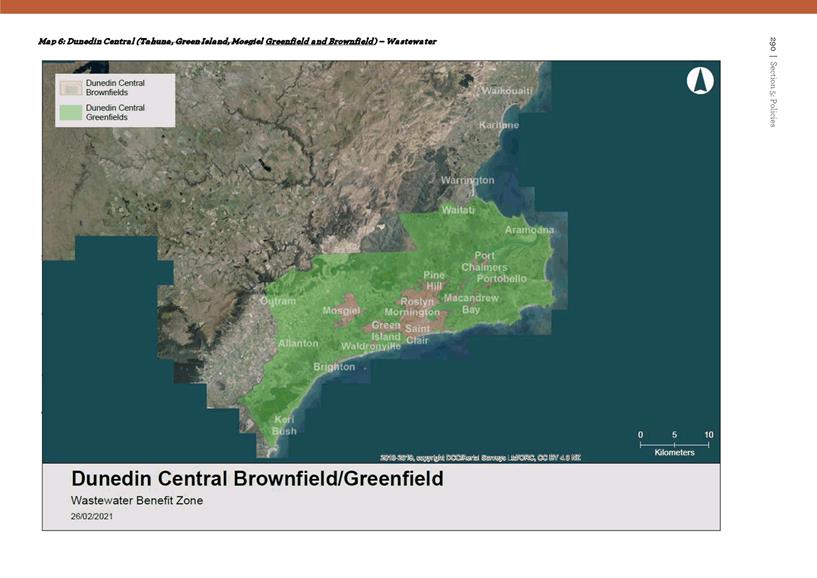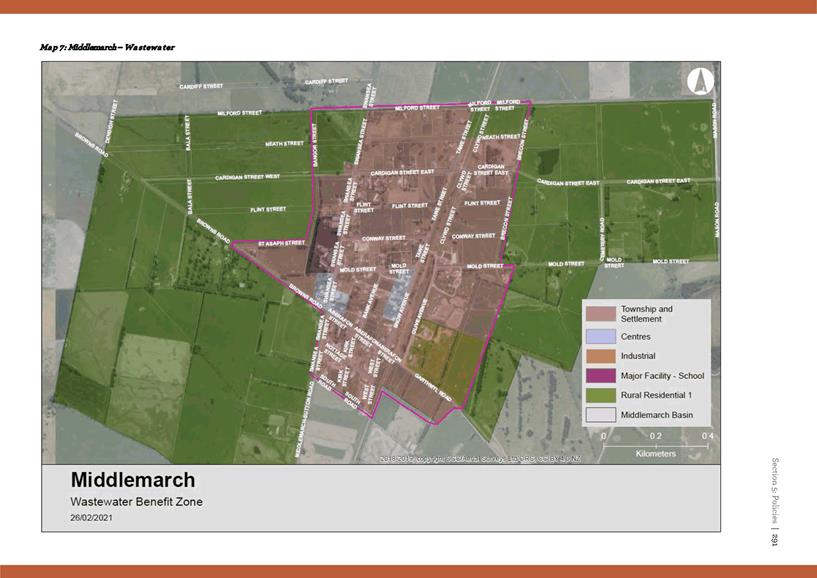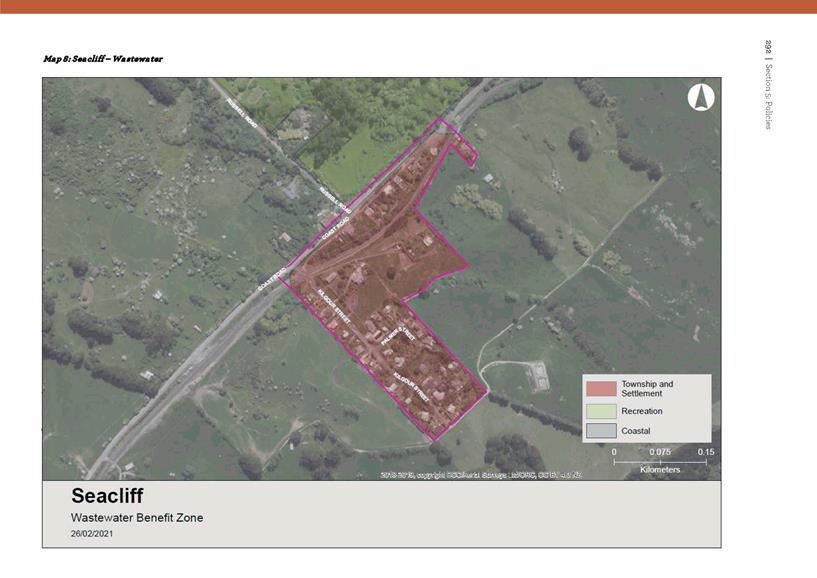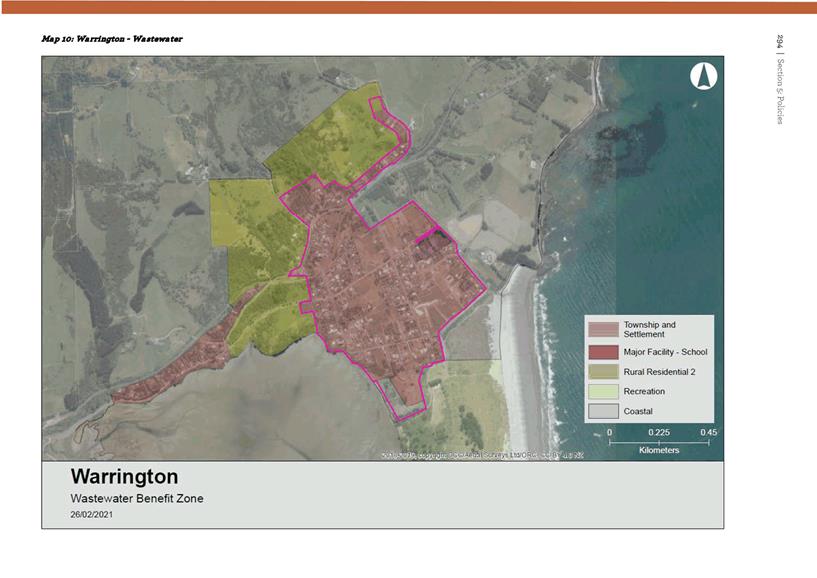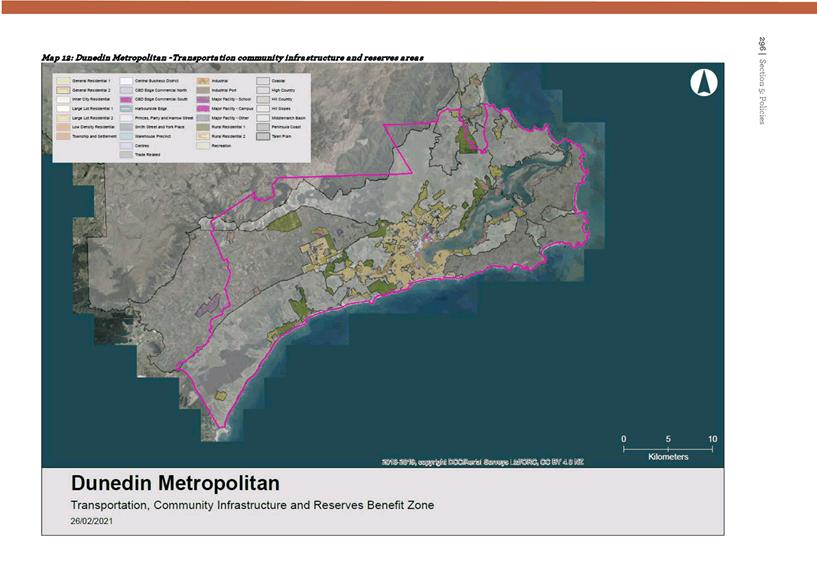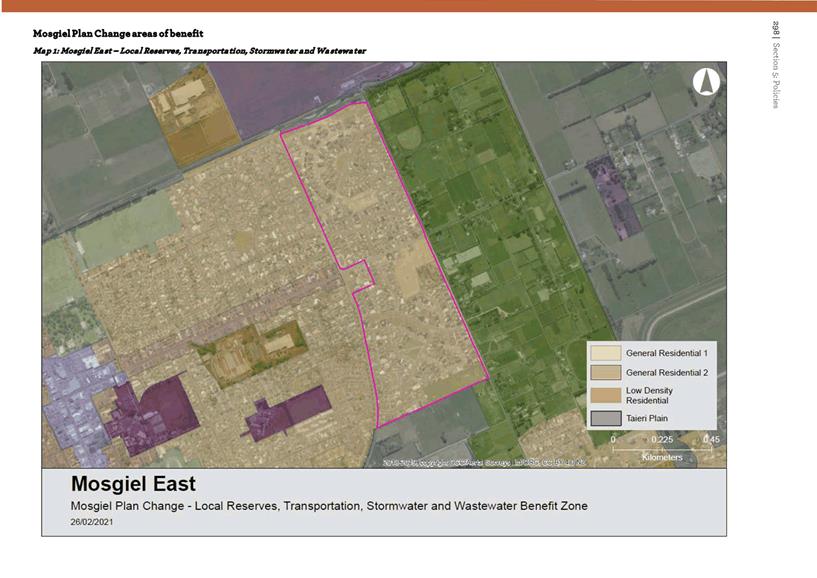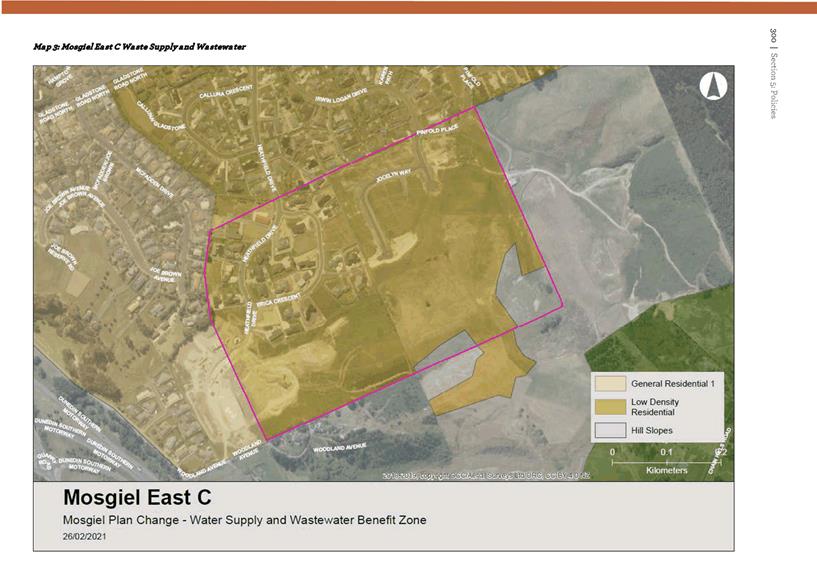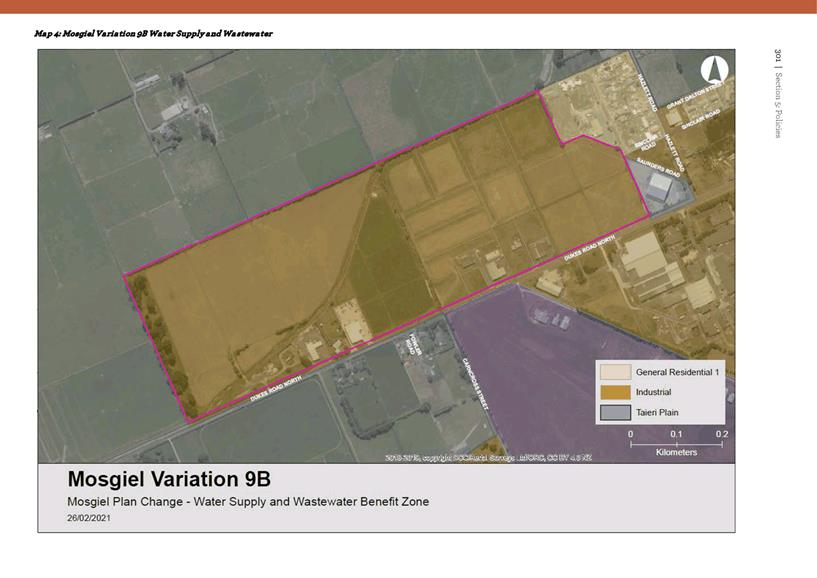Notice of Meeting:
I hereby give notice that an ordinary meeting of the Dunedin
City Council will be held on:
Date: Tuesday
9 March 2021
Time: 10.00
am
Venue: Council
Chamber, Municipal Chambers, The Octagon, Dunedin
Sandy Graham
Council
PUBLIC AGENDA
|
Mayor
|
Mayor Aaron Hawkins
|
|
|
Deputy Mayor
|
Cr Christine Garey
|
|
|
Members
|
Cr Sophie Barker
|
Cr David Benson-Pope
|
|
|
Cr Rachel Elder
|
Cr Doug Hall
|
|
|
Cr Carmen Houlahan
|
Cr Marie Laufiso
|
|
|
Cr Mike Lord
|
Cr Jim O'Malley
|
|
|
Cr Jules Radich
|
Cr Chris Staynes
|
|
|
Cr Lee Vandervis
|
Cr Steve Walker
|
|
|
Cr Andrew Whiley
|
|
Senior Officer Sandy
Graham, Chief Executive Officer
Governance Support Officer Lynne
Adamson
Lynne Adamson
Governance Support Officer
Telephone: 03 477 4000
Lynne.Adamson@dcc.govt.nz
www.dunedin.govt.nz
Note: Reports
and recommendations contained in this agenda are not to be considered as
Council policy until adopted.
|

|
Council
9 March 2021
|
ITEM TABLE OF CONTENTS PAGE
1 Public
Forum 4
2 Apologies 4
3 Confirmation
of Agenda 4
4 Declaration
of Interest 5
Reports
5 Draft
Zero Carbon 2030 Alliance Memorandum of Understanding 19
6 DCC
Submission on the Climate Change Commission's draft first package of advice to
Government 42
7 Supporting
documentation for the 10 year plan consultation document 63
8 Consultation
Document - 10 year plan 2021-31 144
9 DCC
submission on the Smokefree Environments and Regulated Products Act 1990 -
Proposals for Regulations 170
10 Development
Contributions Policy update 177
11 LGNZ
Conference 2021 270
Resolution to Exclude the Public 272
|

|
Council
9 March 2021
|
1 Public
Forum
At the close of the agenda no
requests for public forum had been received.
2 Apologies
At
the close of the agenda no apologies had been received.
3 Confirmation
of agenda
Note:
Any additions must be approved by resolution with an explanation as to why they
cannot be delayed until a future meeting.
|

|
Council
9 March 2021
|
Declaration of Interest
EXECUTIVE SUMMARY
1. Members
are reminded of the need to stand aside from decision-making when a conflict
arises between their role as an elected representative and any private or other
external interest they might have.
2. Elected
members are reminded to update their register of interests as
soon as practicable, including amending the register at this meeting if
necessary.
3. Staff
members are reminded to update their register of interests as soon as
practicable.
|
RECOMMENDATIONS
That the Council:
a) Notes/Amends if necessary the Elected Members'
Interest Register attached as Attachment A; and
b) Confirms/Amends the proposed management plan for
Elected Members' Interests.
c) Notes the proposed management plan for the Executive Leadership
Team’s Interests.
|
Attachments
|
|
Title
|
Page
|
|
⇩a
|
Councillor Register of
Interest
|
7
|
|
⇩b
|
Executive Leadership
Team Register of Interest
|
17
|
|

|
Council
9 March 2021
|
Reports
Draft Zero Carbon 2030 Alliance Memorandum of
Understanding
Department: Civic
EXECUTIVE SUMMARY
1 This
report provides an update on the establishment of a partnership approach to
progress city-wide emissions reduction efforts (a ‘Zero Carbon 2030
Alliance’).
2 Specifically,
the report seeks Council approval of a draft Memorandum of Understanding for the
Zero Carbon 2030 Alliance for submission to the governing bodies of potential
founding members, and a process for finalising and adopting the final document.
|
RECOMMENDATIONS
That the Council:
a) Notes that the Zero Carbon 2030 Alliance replaces the Dunedin
Energy Leaders’ Accord;
b) Approves the draft Zero Carbon 2030 Alliance
Memorandum of Understanding for submission to the governing bodies of
potential founding partners;
c) Delegates authority to the Chief Executive
Officer to incorporate any amendments to the Memorandum of Understanding
sought by founding partners, and to sign the final version on the
Council’s behalf;
d) Notes that, following signing of the Memorandum of
Understanding, the final version will be brought back to Council for noting;
and
e) Notes that, following signing of the Memorandum of
Understanding, a draft Terms of Reference for the Zero Carbon 2030
Collaboration Group will be developed and brought back to Council for
adoption.
|
BACKGROUND
3 On
September 27 2020, Council considered a report setting out an update on the
Zero Carbon work programme, including a possible partnership approach to
progress citywide emissions reduction efforts (a ‘Zero Carbon 2030
Alliance’), to replace the inactive Dunedin Energy Leaders’ Accord.
4 It
was suggested that a formal partnership of major agencies committed to
emissions reduction would:
a) support,
and provide the opportunity to amplify existing partnership-based emissions
reduction efforts, while the development of a city-wide emissions reduction
plan is underway
b) play
a key support role in the development of a city-wide emissions reduction plan,
and ensure that the plan has a greater chance of being effectively implemented;
c) replace
the Dunedin Energy Leaders’ Accord - an existing, inactive city-wide
initiative relating to energy; and
d) better
reflect the DCC’s commitment to the principles of the Treaty of Waitangi.
5 In
addition to the DCC, six other parties were identified as potential founding
members:
· Kāti
Huirapa Rūnaka ki Puketeraki
· Ōtakou
Runaka
· Otago
Regional Council
· Southern
District Health Board
· University
of Otago
· Otago
Polytechnic
6 It
was envisaged that a first step would involve development of an agreed Terms of
Reference for the entity, which would then be brought back to Council for
approval.
7 In
response to the report, Council resolved as follows:
Moved (Cr Steve Walker/Cr Christine Garey):
That the Council:
a) Notes the Zero Carbon work programme update, including
the updated emissions profile for Dunedin city
b) Approves in principle the concept of establishing a
‘Zero Carbon 2030 Alliance’ to take a partnership approach to
city-wide emissions reduction, with Kāti Huirapa Rūnaka ki
Puketeraki, Ōtākou Runaka, Otago Regional Council, Southern District
Health Board, University of Otago and Otago Polytechnic to be approached as
potential founding members, and
c) Notes that the Terms of Reference would be developed
with potential founding members and a final draft reported back to Council.
Division
The Council voted by division:
For: Crs Sophie Barker, David Benson-Pope, Rachel Elder,
Christine Garey, Doug Hall, Mike Lord, Jim O'Malley, Jules Radich, Chris
Staynes, Steve Walker, Andrew Whiley and Mayor Aaron Hawkins (12).
Against: Cr Lee Vandervis (1).
Abstained: Nil
The division was declared CARRIED by 12 votes to 1
Motion carried (CNL/2020/071)
DISCUSSION
8 Formal
discussions with potential founding partners were initiated in October. All
potential founding partners have since confirmed their interest in being
involved in the partnership, including the Otago Regional Council, who
considered the matter at their meeting on 24 February and confirmed
participation in discussions regarding mechanisms to establish the Zero Carbon
2030 Alliance.
9 Rather
than moving directly to a Terms of Reference for the proposed Zero Carbon 2030
Alliance, it was agreed that a more appropriate first step was development of a
Memorandum of Understanding (MOU) between the parties relating to the proposed
role and function of the proposed entity.
10 A
draft MOU has been developed (Attachment A). This has been reviewed at an
officer level by the Otago Regional Council, Southern District Health Board,
University of Otago, and Otago Polytechnic, and changes sought by these parties
have been incorporated. The draft MOU has also been through legal review.
Feedback on the draft MOU is yet to be received from Kāti Huirapa
Rūnaka ki Puketeraki and Ōtakou Runaka.
Draft
objectives and commitments
11 The
draft MOU formalises the purpose of the Zero Carbon 2030 Alliance as being to
address and/or achieve the following objectives:
a) Greater
visibility and support for existing collaborative emissions-reducing
initiatives;
b) Shared
understanding of Dunedin’s emissions profile;
c) Sharing
of good practice around reducing both organisational and city-wide emissions;
d) Identification
of additional collaborative opportunities to reduce both operational and
city-wide emissions generally, and to contribute to the city’s Zero
Carbon 2030 target specifically;
e) Wider
and more coordinated promotion of good practice and success in emissions
reduction, and the importance of the Zero Carbon 2030 target;
f) Opportunities
to input into the development of a Zero Carbon 2030 Plan for Dunedin; and
g) Opportunities
for research that may be transferable to the reduction of emissions in other
contexts.
12 The
MOU commits each party to establishing a baseline
organisational emissions profile in line with ISO 16064, and an associated
emissions reduction plan, within one year of the signing of the MOU, and to
updating this emissions profile no later than 2023/24, and annually thereafter.
13 The
DCC’s existing emissions reporting under the Toitū
carbonreduce programme, already fulfills this requirement.
14 The
MOU also requires each party to share this emissions profile with other
parties, to enable the identification of opportunities to collaborate on
emissions reduction.
15 Further
than that, the MOU is explicit that it does not oblige a party to implement or
contribute to any other specific initiatives supported by the Alliance, which
that Party does not see merit in, or have the means to progress. However, it
does commit all parties to using best endeavours, in pursuit of the objectives
of the MOU, to:
· support
and amplify existing collaborative emissions-reducing initiatives;
· identify
and progress additional collaborative opportunities to reduce both operational
and city-wide emissions generally, and to contribute to the city’s Zero
Carbon 2030 target specifically;
· strive
to achieve substantial cuts in organisational emissions by 2030, and to
contribute to city-wide emissions reduction;
· share
good practice around reducing organisational emissions;
· promote
and publicise good practice and success in emissions reduction, and the
importance of the Zero Carbon 2030 target
· support
the development of a Zero Carbon 2030 Plan for Dunedin; and
· support
research on emissions reduction that may be transferable to the reduction of
emissions in other contexts.
Envisaged
means of collaboration
16 It
is proposed that a Zero Carbon 2030 Collaboration Group be established. This
Collaboration Group would comprise two high-level representatives from each
party to the MOU, to provide oversight of, and to facilitate actions required
to support, achievement of the objectives. It is proposed that this group meet
twice annually, with the work programme flowing from Collaboration Group
decisions to be progressed by designated officers between these meetings.
17 The
MOU also proposes that all parties will give serious consideration to
co-funding or co-resourcing initiatives that are considered mutually beneficial
and aligned with pursuit of the objectives.
18 The
draft MOU establishes the DCC as the lead party responsible for coordinating
the Zero Carbon 2030 Alliance, including through finalising and adopting the
Terms of Reference for the Zero Carbon 2030 Collaboration Group, provision of
administrative support for meetings, provision of information relating to the
city’s emissions profile, and leading the development of a Zero Carbon
2030 Plan for Dunedin. The DCC is also to have an administrative function
relating to the admission of new parties to the MOU.
Admission
of new parties to the Alliance
19 Under
the terms of the MOU, new parties may only be admitted to the Zero Carbon 2030
Alliance on the unanimous recommendation of the Zero Carbon 2030 Collaboration
Group, and subject to them meeting one or more of the following criteria:
· Mana
whenua;
· Public
sector agencies or local authorities with a key strategic role in decarbonising
Dunedin’s public sector specifically, and Dunedin’s economy
generally;
· Major
emitters in the Dunedin context, with a commitment to achieving significant
(80%-100%) reduction in emissions by 2030; or
· Membership-based
organisations representing major Dunedin sectors.
OPTIONS
20 Three
options have been identified for Council to consider in relation to progressing
the Zero Carbon 2030 Alliance.
Option
One – Approve the draft Zero Carbon 2030 Alliance MOU for submission to
the governing bodies of potential founding partners, with authority delegated
to the CEO to incorporate any amendments sought to the text in negotiation with
the parties, and to sign on the Council’s behalf (Recommended Option)
21 Under
this option, the draft Zero Carbon 2030 Alliance MOU (replacing the Dunedin
Energy Leaders’ Accord) would be submitted to the governing bodies of the
six other potential founding partners, for their review and approval.
22 Amendments
sought by the potential founding partners would be made by the DCC’s CEO
under delegation, in negotiation with the other parties.
23 A
request would be made of other governing bodies, that they also delegate
authority to their CEO/General Manager to approve amendments to the text of the
MOU under delegation.
24 Following
finalisation of the MOU,
a) the
final version of the MOU would be brought back to Council for noting;
b) a
Terms of Reference for the Zero Carbon 2030 Collaboration Group would be
brought back to Council for approval; and
c) confirmation
of the DCC’s Collaboration Group representatives would be sought.
Advantages
· The
Zero Carbon 2030 Alliance would support, and provide the opportunity to
amplify, existing partnership-based emissions reduction efforts, and better
reflect the DCC’s commitment to the Treaty of Waitangi, while the
development of a city-wide emissions reduction plan is underway.
· The
Zero Carbon 2030 Alliance would support development of a city-wide emissions
reduction plan, and ensure that the plan has a greater chance of being
effectively implemented.
· The
Zero Carbon 2030 Alliance would replace the Dunedin Energy Leaders’
Accord (an existing, inactive city-wide initiative relating to energy).
· Establishment
of the Zero Carbon 2030 Alliance would be expedited, with the MOU able to be
finalised by the CEO under delegation.
Disadvantages
· The
Council would not have an opportunity to debate the final text of the MOU.
Option
Two – Approve the draft Zero Carbon 2030 Alliance MOU for submission to
the governing bodies of potential founding partners, with all amendments sought
to return to Council for approval
25 Under
this option, the draft Zero Carbon 2030 Alliance MOU (replacing the Dunedin
Energy Leaders’ Accord) would be submitted to the governing bodies of the
six other potential founding partners, for their review and approval.
26 Amendments
sought by the potential founding partners would be negotiated with the other
parties prior to an updated MOU returning to Council for review and approval.
27 Following
Council and founding partner approval of the MOU,
a) a
Terms of Reference for the Zero Carbon 2030 Collaboration Group would be
brought back to Council for approval; and
b) confirmation
of the DCC’s Collaboration Group representatives would be sought.
Advantages
· The
Zero Carbon 2030 Alliance would support, and provide the opportunity to
amplify, existing partnership-based emissions reduction efforts, and better
reflect the DCC’s commitment to the Treaty of Waitangi, while the
development of a city-wide emissions reduction plan is underway.
· The
Zero Carbon 2030 Alliance would support development of a city-wide emissions
reduction plan, and ensure that the plan has a greater chance of being
effectively implemented.
· The
Zero Carbon 2030 Alliance would replace the Dunedin Energy Leaders’
Accord (an existing, inactive city-wide initiative relating to energy).
Disadvantages
· Establishment
of the Zero Carbon 2030 Alliance may be slower, as all feedback would need to
be received, and a final MOU developed in negotiation with all parties, before
being brought back to Council for approval.
Option
Three – Status Quo
28 Under
this option, staff would advise potential founding partners that the DCC does
not wish to progress with the establishment of a Zero Carbon 2030 Alliance.
29 Partnership
work with other major city stakeholders on emissions reduction would continue
to be progressed through other work streams.
30 Staff
would consider alternative approaches to engagement with major city
stakeholders to support development of a city-wide emissions reduction plan for
the city.
31 Reinvigoration
of the existing Energy Leaders Accord could be explored with existing signatories
as a vehicle to progress city-wide energy-related initiatives.
Advantages
· No
advantages have been identified.
Disadvantages
· Existing
partnership projects that have emissions reduction potential would continue to
be progressed but are unlikely to realise their full potential given a lack of
coordination.
· An
alternative approach to engaging major agencies in city-wide emissions
reduction plan development and implementation, would need to be identified.
· An
alternative approach to better reflecting the DCC’s commitment to the
principles of the Treaty of Waitangi in both its work on both energy and
emissions, would need to be identified.
· An
opportunity to realign resourcing with the DCC’s increased focus on
emissions, would be lost.
NEXT STEPS
32 Should
Council approve the draft Zero Carbon 2030 Alliance MOU, it would be submitted
to the governing bodies of the six other potential founding partners, for their
review and approval.
33 The
DCC will then begin coordinating the Zero Carbon 2030 Alliance, including
administrative support for meetings.
Signatories
|
Author:
|
Jinty MacTavish - Principal Policy Advisor
|
|
Authoriser:
|
Nicola Pinfold - Group Manager Community and Planning
Robert West - Acting General Manager City Services
|
Attachments
|
|
Title
|
Page
|
|
⇩a
|
Draft Zero Carbon 2030
Alliance MOU
|
28
|
|
SUMMARY OF CONSIDERATIONS
|
|
Fit with purpose
of Local Government
The establishment of a Zero Carbon 2030
Alliance is anticipated to promote the social, economic and environmental
well-being of communities in the present and for the future, by facilitating
a transition to a low carbon economy.
|
|
Fit with strategic
framework
|
|
Contributes
|
Detracts
|
Not applicable
|
|
Social Wellbeing Strategy
|
☒
|
☐
|
☐
|
|
Economic Development Strategy
|
☒
|
☐
|
☐
|
|
Environment Strategy
|
☒
|
☐
|
☐
|
|
Arts and Culture Strategy
|
☐
|
☐
|
☒
|
|
3 Waters Strategy
|
☒
|
☐
|
☐
|
|
Spatial Plan
|
☒
|
☐
|
☐
|
|
Integrated Transport Strategy
|
☒
|
☐
|
☐
|
|
Parks and Recreation Strategy
|
☐
|
☐
|
☐
|
|
Other strategic projects/policies/plans
|
☒
|
☐
|
☐
|
In addition to contributing to the goals of the strategies
listed above, establishment of a Zero Carbon 2030 Alliance has been assessed
as directly contributing to the Energy Plan 1.0, the DCC’s Emissions
Management and Reduction Plan, and the DCC’s Carbon Management Policy
(2017).
|
|
Māori Impact
Statement
In September 2020 the Māori Participation Working
Party considered the concept and recommended to the rūnaka that the
concept of a Zero Carbon 2030 Alliance was worthy of in principle support.
Subsequent correspondence with the rūnaka has confirmed their in
principle interest in the partnership, but feedback on the draft Zero Carbon
2030 Alliance MOU is yet to be received.
|
|
Sustainability
Climate change mitigation/emissions reduction efforts are
considered key to sustainability. Establishment of a Zero Carbon 2030
Alliance seeks to establish a partnership-based approach to city-wide
emissions reduction.
|
|
LTP/Annual Plan /
Financial Strategy /Infrastructure Strategy
The Zero Carbon work programme, including establishment of
a Zero Carbon 2030 Alliance, can be progressed within existing budgets during
2020/21. Resourcing for the Zero Carbon work programme for 2021/22 and beyond
is subject to 10 year plan deliberations. Both the draft Financial Strategy
and draft Infrastructure Strategy discuss links to the Zero Carbon work
programme.
|
|
Financial
considerations
The Zero Carbon work programme, including establishment of
a Zero Carbon 2030 Alliance, can be progressed within existing budgets during
2020/21.
|
|
Significance
As the proposed Zero Carbon 2030 Alliance seeks to
progress work towards a target previously set by Council, a decision to
progress a partnership approach to emissions reduction is considered of low
significance in terms of the Council’s Significance and Engagement
Policy.
|
|
Engagement –
external
Feedback on the draft MOU was sought and received from the
University of Otago, Southern District Health Board, Otago Polytechnic and
the Otago Regional Council. Feedback is yet to be received from Kāti
Huirapa Rūnaka ki Puketeraki and Ōtākou Runaka, although in
principle support of the concept of a partnership has been confirmed.
|
|
Engagement -
internal
No internal engagement has been undertaken specifically in
relation to the content of the MOU.
|
|
Risks: Legal /
Health and Safety etc.
A legal review of the draft MOU has been undertaken for
the DCC by Anderson Lloyd.
It is considered that there are some reputational risks
for the DCC associated with non-delivery on emissions reduction ambitions,
given the target adopted by Council in 2019.
|
|
Conflict of Interest
No conflict of interest has been identified.
|
|
Community Boards
There has been no engagement to date with Community Boards
as part of the Zero Carbon work programme.
|
|

|
Council
9 March 2021
|
DCC Submission on the Climate Change
Commission's draft first package of advice to Government
Department: Civic
EXECUTIVE SUMMARY
1 This
report seeks approval for the Dunedin City Council (DCC) submission (Attachment
A) on the He Pou a Rangi - Climate Change Commission’s 2021 Draft Advice
for Consultation.
2 Submissions
close on 14 March 2021. The final advice to Government from the Commission will
be issued by 31 May 2021.
|
RECOMMENDATIONS
That the Council:
a) Approves the Dunedin City Council submission to
the Climate Change Commission on the ‘2021 Draft Advice for
Consultation’, with any amendments.
|
BACKGROUND
3 The
Climate Change Response (Zero Carbon) Amendment Act was passed in 2019. It set
a new domestic greenhouse gas emissions reduction target for New Zealand, as
follows:
· net emissions
of all greenhouse gases (except biogenic methane) to zero by 2050; and
· emissions
of biogenic methane to 24–47% below 2017 levels by 2050, including to 10%
below 2017 levels by 2030
4 Relevant
to emissions reduction, the Act also established:
a) a
system of mandatory national emissions budgets and plans (with the Government
legally bound to have the first in place by 31 December 2021), and
b) a
new, independent Climate Change Commission (‘the Commission’) to
serve an advisory and monitoring function, including on the setting of national
emissions budgets and plans.
Climate
Change Commission draft report
5 The
Commission has recently released its first draft package of advice to the Government
on emissions budgets and emissions reduction pathways – its ‘2021
Draft Advice for Consultation’. This is accessible at https://www.climatecommission.govt.nz/get-involved/our-advice-and-evidence/.
6 The
Commission’s package of advice to government covers:
· the
proposed first three emissions budgets and guidance on the
first emissions reduction plan, advising the Government on how the
emissions budgets could be met
· whether
New Zealand’s first Nationally Determined Contribution is
compatible with contributing to the global efforts to limit warming
to 1.5°C above pre-industrial levels
· advice
on what potential reductions in biogenic methane might be needed in the future.
7 The
Commission’s initial task is to provide the Government with advice on the
level of the first three five-yearly emissions budgets that will put New
Zealand on track to meeting its domestic 2030 and 2050 emissions targets, and
the direction of policy that should be included in the Government’s first
emissions reduction plan.
8 The
Commission’s advice is built around 17 recommendations or ‘critical
actions’ that cover all sectors of the economy, underpinned by seven key
principles.
National
climate change targets and trajectory
9 As
set out above, the Government has committed to reaching net zero emissions of
long-lived gases by 2050, and to reducing biogenic methane emissions by 24-47%
below 2017 levels by 2050.
10 In
2018, gross greenhouse gas emissions in New Zealand were approximately 45.5 Mt
CO2e of long-lived gases, and 1.34 Mt of biogenic methane. The
Commission’s analysis shows if policy settings stayed ‘as
is’, New Zealand would fall short of achieving the 2050 net zero
long-lived gas target by 6.3 Mt CO2e. Biogenic methane would reduce
12% below 2017 levels and fall short of the current target of a 24-47%
reduction below 2017 levels.
11 Over
the first budget period, between 2022 and 2025, the Commission notes New
Zealand would emit an average of 67.7 Mt CO2e a year – down
from currently expected 68.7 Mt CO2e. For the second period, between
2026 and 2030, average annual emissions would drop to 57.3 Mt CO2e,
instead of the projected 63.9 Mt CO2e. In the final period, from
2031 to 2035, New Zealand would emit an average of just 44.6 Mt CO2e
rather than the forecast 57.8 Mt CO2e.
12 New
Zealand is currently on a pathway to emit an additional 112.5 Mt CO2e
between 2022 and 2035 than the Commission’s budgets call for.
DISCUSSION
Sector recommendations
13 The
Commission’s primary advice focuses on, and calls for, the following:
· Transport:
an integrated national transport network that reduces travel by private car,
more walking, cycling and use of public and shared transport, rapidly
electrifying the vehicle fleet, and moving more freight to rail and marine
transport.
· Waste:
moving towards a circular economy, where resources are valued and reused, with
a focus on diverting organic waste from landfill, and capturing an increased
amount of the methane from any remaining waste that cannot be diverted from
landfill.
· Energy
use / buildings: improving the energy efficiency of buildings, alongside
decarbonising the energy used for heating, hot water and cooking.
· Economic
growth / employment: job losses in the fossil fuel sector, possibly resulting
in 600-1,100 fewer jobs by 2035; fewer job losses in the agricultural sector
than under existing policy settings (due to reduced land use change to
forestry); potential new job opportunities in the circular economy, in biofuel
and hydrogen research, production and distribution and in other new
technologies; a focus on retraining, and localised transition planning.
· Forestry:
relative to current policy settings, an increased focus on new native forests
to create a long-lived source of carbon removals, while also noting that a
reliance on forests to meet climate change targets would not be possible to
meet national climate change targets. The Commission envisages planting an
additional 1.4 million hectares with trees (equivalent to a third of Southland
or Otago).
· Local
government: aligning legislation and policy to enable local government to make
effective decisions for climate change mitigation (e.g. through the Local
Government Act), and implementing funding mechanisms to enable emissions
reduction plans to be implemented effectively at a local level.
Te
Ao Māori
14 The
Commission has also taken a Te Ao Māori (Māori world view) approach
and highlights that ‘an equitable and fair transition’ is critical.
The Commission recommends in particular the Government target assistance and
support to low-income and Māori communities which may be proportionately
more affected by decarbonisation efforts.
DCC’s
submission
15 DCC’s
draft submission is presented at Attachment A. The draft submission provides
contextual information relating to the DCC’s climate change mitigation
activities, as well as direct feedback on the draft advice. This is because the
Commission’s advice to the Government will in part be informed by their
understanding of emissions reduction activities already in train, including in
the local government sector.
16 The
draft submission generally supports the Commission’s draft advice, while
calling for consideration of higher, earlier cuts to gross emissions, in line
with the DCC’s Zero Carbon 2030 target. In particular, it highlights:
· the
need for a more balanced weighting of the Commission’s
‘principles’, increasing the focus on emissions reduction,
well-being, an equitable transition and leveraging co-benefits;
· the
importance of urban form to outcomes for transport emissions, and the need for
tight integration of land use and transport system planning;
· the
risks of over-reliance on fleet electrification as a means of decarbonising the
transport sector, and the adverse environmental impacts this may cause
(notwithstanding Dunedin’s general support of fleet electrification);
· impacts
on, and transition assistance for, small-to-medium enterprises (which make up
87.3% of Dunedin’s businesses) and affected sectors;
· support
for greater ambition relating to emissions cuts in the waste sector, drawing on
the DCC’s experience in landfill gas capture, and its existing
commitments to a circular economy;
· strong
support for central and local government working in partnership through
legislative and regulatory alignment, guidance, and funding/financing
mechanisms, to enable more effective implementation of reduction plans.
OPTIONS
17 Three
options are presented.
Option
One – Approve DCC’s draft submission to the Climate Change
Commission, without or without amendments (Recommended Option)
18 Approve
the draft DCC submission to the Commission on its draft 2021 Advice for
Consultation.
Advantages
· In
line with DCC’s Zero Carbon 2030 target and related strategic goals,
provides an opportunity to advocate for higher national ambition on emissions
reduction, and for associated amendments to draft guidance that will be used to
inform national policy.
Disadvantages
· There
are no identified disadvantages for this option.
Option
Two – Do not approve or submit DCC’s draft submission to the
Climate Change Commission
19 Do not submit on the Commission’s draft advice.
Advantages
· There
are no identified advantages for this option.
Disadvantages
· Would
miss an opportunity to advocate for higher national ambition on emissions
reduction, and for associated amendments to draft guidance that will be used to
inform national policy, in line with DCC’s Zero Carbon 2030 target and
related strategic goals.
NEXT STEPS
20 If
approved, DCC staff will submit Council’s final submission to the
Commission.
Signatories
|
Author:
|
Jinty MacTavish - Principal Policy Advisor
|
|
Authoriser:
|
Nicola Pinfold - Group Manager Community and Planning
Robert West - Acting General Manager City Services
|
Attachments
|
|
Title
|
Page
|
|
⇩a
|
DCC Draft Submission to
Climate Change Commission
|
49
|
|
SUMMARY OF CONSIDERATIONS
|
|
Fit with purpose
of Local Government
DCC’s draft submission to the
Commission promotes the social, economic and environmental well-being of communities
in the present and for the future, by supporting the facilitation of a
transition to a low carbon economy.
|
|
Fit with strategic
framework
|
|
Contributes
|
Detracts
|
Not applicable
|
|
Social Wellbeing Strategy
|
☒
|
☐
|
☐
|
|
Economic Development Strategy
|
☒
|
☐
|
☐
|
|
Environment Strategy
|
☒
|
☐
|
☐
|
|
Arts and Culture Strategy
|
☐
|
☐
|
☒
|
|
3 Waters Strategy
|
☒
|
☐
|
☐
|
|
Spatial Plan
|
☒
|
☐
|
☐
|
|
Integrated Transport Strategy
|
☒
|
☐
|
☐
|
|
Parks and Recreation Strategy
|
☐
|
☐
|
☒
|
|
Other strategic projects/policies/plans
|
☒
|
☐
|
☐
|
The draft submission directly contributes to the goals of
the Economic Development and Environment Strategies, Social Wellbeing
Strategy, Integrated Transport Strategy, Spatial Plan, Energy Plan 1.0, and
the DCC’s Emissions Management and Reduction Plan.
|
|
Māori Impact
Statement
The draft submission discusses the importance of a Te Ao
Māori approach and emphasises DCC’s existing partnerships with
Māori, mana whenua and local rūnaka.
|
|
Sustainability
Climate change mitigation/emissions reduction efforts are
considered key to sustainability. In line with the DCC’s Zero Carbon
2030 target and related strategic goals, the submission provides an
opportunity to advocate for higher national ambition on emissions reduction,
and for associated amendments to draft guidance that will be used to inform
national policy.
|
|
LTP/Annual Plan /
Financial Strategy /Infrastructure Strategy
The DCC’s wider activities in terms of emissions
reduction, including the Zero Carbon work programme, are progressing within
existing budgets during 2020/21.
|
|
Financial
considerations
There are no financial implications arising from the draft
submission. The Zero Carbon work programme can be progressed within existing
budgets during 2020/21.
|
|
Significance
The draft submission is considered of low significance in
terms of the Council’s Significance and Engagement Policy.
|
|
Engagement –
external
DCC staff have attended presentations from the Commission
on the report and its key findings. These have been reflected in the draft
submission.
|
|
Engagement -
internal
The submission incorporates feedback from a range of departments,
including Transport and Waste and Environmental Solutions.
|
|
Risks: Legal /
Health and Safety etc.
There are no risks identified related to the draft
submission.
|
|
Conflict of
Interest
No conflict of interest has been identified.
|
|
Community Boards
There has been no engagement with Community Boards on the
draft submission.
|
|

|
Council
9 March 2021
|
Supporting documentation for the 10 year plan
consultation document
Department: Corporate Policy
EXECUTIVE SUMMARY
1 This
report seeks approval of the remaining supporting documentation to support the
community engagement and consultation on the 10 year plan 2021-31.
2 Some
of the supporting documents have already been considered by the Council but have
been updated to reflect decisions made by Council and feedback received by
Audit New Zealand.
|
RECOMMENDATIONS
That the Council:
a) Adopts for the purposes of developing the 10
year plan 2021-31 and consulting with the community, the
i) Financial information as shown in
Attachment A to this report;
ii) Signficant forecasting assumptions as
shown in Attachment B to this report;
iii) Council controlled organsiations, as
shown in Attachment C to this report;
iv) Group information as shown in Attachment
D to this report;
v) Significant negative effects as shown in
Attachment E to this report;
vi) Statements of variation as shown in
Attachment F to this report;
vii) Rating information as shown in
Attachment G to this report;
viii) Draft Financial Strategy as shown in
Attachment H to this report; and
ix) Draft Infrastructure Strategy as shown
in Attachment I to this report.
|
BACKGROUND
3 The
Local Government Act 2002 (LGA) requires all local authorities to develop a 10
year plan. The Council is also required to develop a consultation
document to provide an effective basis for public participation in the
Council’s decision-making processes relating to the content of the 10
year plan.
4 Information
that supports the content of the consultation document must be publicly
available and collectively are known as ‘supporting documents’ or
‘underlying information’. Some of this content is legislatively
required under the LGA.
5 The
Council has already adopted and approved many of the supporting documents at
the Council meetings on 25 August 2020, 10 November 2020, 14 – 15
December 2020, 27 – 29 January 2021, and 23 February 2021.
6 The
Council is legislatively required to adopt the supporting documents before
adopting the consultation document.
DISCUSSION
7 Updates
have been made to some of the supporting documents to reflect decisions made at
the 14 – 15 December 2020, 27 – 29 January 2021 and 23 February
2021 Council meetings, and feedback received from Audit New Zealand. The
amendments are shown as track changes in the attached documents.
8 The
following supporting documents are attached for adoption:
· Financial
information (Attachment A) is made up of forecast financial statements,
previously seen, but updated to include the proposed capital expenditure of $10
million over the 10 year period for growing the housing portfolio.
Accounting policies and notes, prospective information, and a disclosure
statement are also included, and is information not previously seen by
Council. These documents are required under the LGA.
· Significant
forecasting assumptions (Attachment B). This information has been
previously considered by Council. Feedback from audit has resulted in
amending the level of uncertainty for some of the COVID-19 assumptions from a
high level of uncertainty to a medium /high level or medium level. The
availability of a vaccine has informed these amendments. A minor
correction has been made to the climate data.
· Council
controlled organisations (CCO’s), (Attachment C). Council has not
seen this information which provides a summary of the main activities of
Council’s CCO’s. It is required under the LGA.
· Group
information (Attachment D), is made up of group funding impact
statements. Council has not seen this financial information in the format
presented. It is required under the LGA.
· Significant
negative effects (Attachment E). This information, not previously seen by
Council, is required under the LGA. It identifies any significant
negative effects that could arise from the activities that Council undertakes,
along with the measures that are taken to minimise those effects. This
will be circulated separately, following completion of a peer review.
· Statements
of variation (Attachment F). Council is required under the LGA to
identify and explain significant variations between the Assessment of Water and
Sanitary Services 2007/08 and the proposals set out in the Council’s 10
year plan for 3 waters, public toilets and cemeteries and crematoriums.
Council must also identify variations between its Waste Management and
Minimisation Plan and proposals in the 10 year plan. This information,
not previously seen by Council, will be circulated separately, following
completion of a peer review.
· Rating
information (Attachment G), is made up of whole of Council funding impact
statement, rating policy, sample rates, funding mechanisms and funding
principles. This financial information, not previously seen, is required
under the LGA. It reflects the decisions made by Council at its meeting
on 27 – 29 January 2021.
· Draft
financial strategy (Attachment H). This has already been considered and
approved by the Council on 27 – 29 January 2021, but has been amended to
include the proposed capital expenditure of $10 million over the 10 year period
for growing the housing portfolio.
· Draft
infrastructure strategy (Attachment I), has been considered and approved by the
Council on 27 – 29 January 2021. Amendments have been made as a
result of feedback from Audit New Zealand to provide more clarity about matters
such as responding to climate change. This will be circulated separately,
following a final review.
OPTIONS
9 There
are no options.
NEXT STEPS
10 All
of the supporting documents will be available on the Council’s website
and at the DCC’s Civic Centre, libraries and service centres to support
the community engagement and consultation of the 10 year plan 2021-2031.
Signatories
|
Author:
|
Sharon Bodeker - Corporate Planner
|
|
Authoriser:
|
Gavin Logie - Acting General Manager Finance
Sandy Graham - Chief Executive Officer
|
Attachments
|
|
Title
|
Page
|
|
⇩a
|
Financial Information
|
68
|
|
⇩b
|
Significant Forecasting
Assumptions
|
99
|
|
⇩c
|
Council Controlled Organisations
|
112
|
|
⇩d
|
Group Information
|
117
|
|
⇨e
|
Signficant Negative
Effects (Under Separate Cover 1)
|
130
|
|
⇨f
|
Statement of Variation
(Under Separate Cover 1)
|
|
|
⇨g
|
Funding Impact
Statement and Rating Information.pdf (Under Separate Cover 1)
|
|
|
⇩h
|
Draft Financial
Strategy
|
|
|
⇨i
|
Draft Infrastructure
Strategy (Under Separate Cover 1)
|
|
|
SUMMARY OF CONSIDERATIONS
|
|
Fit with purpose
of Local Government
The development of the 10 year plan
enables democratic local decision making and action by, and on behalf of
communities and meets the current and future needs of the Dunedin communities
for good quality public services in a way that is most cost effective for
households and businesses.
|
|
Fit with strategic
framework
|
|
Contributes
|
Detracts
|
Not applicable
|
|
Social Wellbeing Strategy
|
☒
|
☐
|
☐
|
|
Economic Development Strategy
|
☒
|
☐
|
☐
|
|
Environment Strategy
|
☒
|
☐
|
☐
|
|
Arts and Culture Strategy
|
☒
|
☐
|
☐
|
|
3 Waters Strategy
|
☒
|
☐
|
☐
|
|
Spatial Plan
|
☒
|
☐
|
☐
|
|
Integrated Transport Strategy
|
☒
|
☐
|
☐
|
|
Parks and Recreation Strategy
|
☒
|
☐
|
☐
|
|
Other strategic projects/policies/plans
|
☒
|
☐
|
☐
|
The 10 year plan contributes to all of the objectives and
priorities of the strategic framework as it describes the Council’s activities,
the community outcomes, and provides a long term focus for decision making
and coordination of the Council’s resources, as well as a basis for
community accountability.
|
|
Māori Impact
Statement
There has been pre-engagement with Mana whenua as part of
the process and hui are planned with both Mana whenua and taurahere
in the next phase of the consultation.
|
|
Sustainability
The 10 year plan presents papers considering various
aspects of the Council’s approach to sustainability. Major issues
and implications for sustainability are discussed in the Infrastructure
Strategy and financial resilience is discussed in the Financial
Strategy. The Climate 2030 Rapid Review and DCC Emissions Reduction
Opportunities report addresses a range of other issues. The
consultation process also focuses on how consultation can be delivered more
sustainably.
|
|
LTP/Annual Plan /
Financial Strategy /Infrastructure Strategy
This report requests approval of the ‘supporting documents’
for the 10 year plan consultation document.
|
|
Financial
considerations
This report requests approval of supporting documents and
content contributing to the development of 10 year plan budgets and financial
statements.
|
|
Significance
The 10 year plan is considered to be of high significance
in terms of the Council’s Significance and Engagement Policy.
|
|
Engagement –
external
There will be extensive community engagement on the draft
budgets and content of the 10 year plan in 2021.
|
|
Engagement -
internal
Staff and managers from across the Council have been
involved in the development of the 10 year plan.
|
|
Risks: Legal /
Health and Safety etc.
There are no known risks.
|
|
Conflict of
Interest
There are no known conflicts of interest.
|
|
Community Boards
Many projects and items identified in Community Board
Plans have been incorporated in the draft budgets following engagement with
Community Boards during the development of the plan. Boards will have
further opportunities to participate during the consultation and submission
phases of the process.
|
|

|
Council
9 March 2021
|

|

|
Council
9 March 2021
|


|

|
Council
9 March 2021
|
Consultation Document - 10 year plan 2021-31
Department: Corporate Policy
EXECUTIVE SUMMARY
1 The
consultation document explains the Council’s proposals for the 10 year
plan in plain English and is based on the decisions made by Council at its 14 -
15 December 2020 meeting, 27 – 29 January 2021 meeting and 23 February
2021 meeting. A copy of the consultation document is at Attachment
A.
2 Audit
New Zealand (Audit NZ) is currently auditing the consultation document and the
supporting documents and will provide the Council with an ‘Independent
Auditor’s report’ on completion of the audit.
|
RECOMMENDATIONS
That the Council:
a) Approves ‘The future of us - 10 year plan
consultation document 2021-31’, subject to Audit New Zealand changes.
b) Delegates the Chief Executive the authority to
make any minor editing required to the approved consultation document.
c) Receives the ‘Independent Auditor’s
Report’ from Audit New Zealand.
d) Adopts ‘The future of us - 10 year plan
consultation document 2021-31’ for consultation with the community.
|
BACKGROUND
3 The
Council is required under the Local Government Act 2002 to have a consultation
document, to support community engagement and participation in the
Council’s decision-making processes relating to the content of the 10
year plan.
DISCUSSION
4 The
consultation document explains the Council’s proposals for the 10 year
plan in plain English, and is based on the decisions made at the Council
meetings on 14-15 December 2020, 27-29 January 2021 and 23 February 2021, and
legislative requirements for the document.
5 Audit
NZ and the Office of the Auditor General (OAG) are auditing the draft
consultation document and the 10 year plan supporting documents for legislative
compliance. Feedback will be received from the OAG and Audit NZ by 5
March 2021. If changes to the consultation document are recommended by the OAG
or Audit NZ, these will be tabled at the meeting.
6 An
‘Independent Auditor’s Report’ will be included in the final
consultation document.
7 The
consultation document will be delivered to all Dunedin homes, and will support
the community engagement on the 10 year plan. The supporting documents
that contain more detailed information will be available on the Council’s
website.
8 Feedback
from the community on the proposals for the 10 year plan and consultation
document will be sought from 30 March to 29 April 2021. There will be a
range of community feedback activities and events held during this period.
OPTIONS
9 There
are no options.
NEXT STEPS
10 The
consultation document will be printed and delivered to every Dunedin
home. The formal consultation period commences from 30 March to 29 April
2021.
Signatories
|
Author:
|
Sharon Bodeker - Corporate Planner
|
|
Authoriser:
|
Sandy Graham - Chief Executive Officer
|
Attachments
|
|
Title
|
Page
|
|
⇩a
|
Draft 10 Year Plan
Consultation Document
|
148
|
|
SUMMARY OF CONSIDERATIONS
|
|
Fit with purpose
of Local Government
This decision enables democratic local
decision making and action by, and on behalf of communities, and promotes the
social, economic, environmental and cultural well-being of communities in the
present and for the future.
|
|
Fit with strategic
framework
|
|
Contributes
|
Detracts
|
Not applicable
|
|
Social Wellbeing Strategy
|
☒
|
☐
|
☐
|
|
Economic Development Strategy
|
☒
|
☐
|
☐
|
|
Environment Strategy
|
☒
|
☐
|
☐
|
|
Arts and Culture Strategy
|
☒
|
☐
|
☐
|
|
3 Waters Strategy
|
☒
|
☐
|
☐
|
|
Spatial Plan
|
☒
|
☐
|
☐
|
|
Integrated Transport Strategy
|
☒
|
☐
|
☐
|
|
Parks and Recreation Strategy
|
☒
|
☐
|
☐
|
|
Other strategic projects/policies/plans
|
☒
|
☐
|
☐
|
The consultation document contains content that
contributes to the objectives and priorities across all areas of the
strategic framework.
|
|
Māori Impact
Statement
The consultation document includes discussion on working
with mana whenua. There has been pre-engagement with mana whenua as
part of the process and hui are planned with both mana whenua and taurahere in the next phase of the consultation.
|
|
Sustainability
Major issues and implications for sustainability are
discussed in the consultation document, specifically in the responding to
climate change and reducing our waste sections of the document. The
consultation process also focuses on how consultation can be delivered more
sustainably.
|
|
LTP/Annual Plan /
Financial Strategy /Infrastructure Strategy
This report requests approval of the 10 year plan
2021-2031 consultation document.
|
|
Financial
considerations
This report requests approval of the 10 year plan 2021-2031
consultation document.
|
|
Significance
Approval of the consultation document is considered to be
of low significance in terms of the Council’s Significance and
Engagement Policy.
|
|
Engagement –
external
There will be extensive external engagement from 27 March
to 29 April 2021 on the content of the 10 year plan consultation document,
which is a key tool of the external engagement programme.
|
|
Engagement -
internal
Councillors and staff have been involved in the
development of the 10 year plan and consultation document.
|
|
Risks: Legal /
Health and Safety etc.
There are no known risks.
|
|
Conflict of
Interest
There are no known conflicts of interest.
|
|
Community Boards
There are a range of issues relating to community board
areas discussed in the consultation document. Boards will have
opportunities to participate during the consultation and submission phases of
the process.
|

|

|
Council
9 March 2021
|
DCC submission on the Smokefree Environments
and Regulated Products Act 1990 - Proposals for Regulations
Department: Corporate Policy
EXECUTIVE SUMMARY
1 This
report seeks approval of a draft Dunedin City Council (DCC) submission
(Attachment A) to the Ministry of Health (MOH) on the Smokefree Environments
& Regulated Products Act 1990 – Proposals for regulations (the
proposals).
2 The
intent of the proposals is to shape the development of final regulations to
help achieve the intent of the Smokefree Environments and Regulated Products
Act 1990.
3 Submissions
close on Monday 15 March 2021.
|
RECOMMENDATIONS
That the Council:
a) Approves the draft Dunedin City Council
submission to the Ministry of Health on the Smokefree Environments &
Regulated Products Act 1990 – Proposals for regulations, with any
agreed amendments.
|
BACKGROUND
4 The
Smokefree Environments and Regulated Products (Vaping) Amendment Act 2020 came
into force on 11 November 2020, with the aim to improve the regulation of
vaping products in New Zealand. This amended the Smoke-free Environments Act
1990 and renamed it the Smokefree Environments and Regulated Products Act 1990
(the Act).
5 The
MOH is seeking feedback on the proposals (see link here
to the consultation document) that provide the operational detail to help
achieve the intent of the new provisions of the Act set out to:
· better
support smokers to switch to regulated products that are less harmful than
smoking
· protect
children, young people and non-smokers from the risks associated with vaping
and smokeless tobacco products.
6 The
DCC implemented the Smokefree Dunedin Policy in 2014. With the recent amendment
to the Act to include vaping, the DCC will seek to update the policy following
submission on the proposals and once the proposed regulations come into effect.
DISCUSSION
7 The
DCC submission acknowledges the benefits of the proposals and the impact it
will have on long-term goals for the DCC which align with Smokefree / Auahi
Kore Aotearoa 2025.
8 The
submission is supportive of the MOH’s proactive approach and commitment
to consideration of a range of regulations that are workable and easy to
administer to achieve the intent of the Smokefree Environments and Regulated
Products Act 1990.
9 The
submission also notes that the DCC’s Trading in Public Places Bylaw 2020
aligns with the Act, making the promotion of Smokefree and vape-free outdoor
hospitality a condition of all commercial use of footpaths permits.
OPTIONSOption One (Recommended Option) – Approve the
submission (with or without amendment)
10 Approve
the draft DCC submission to the MOH on the proposals, with any agreed
amendments.
Advantages
· Opportunity
to show support for the MOU’s commitment to achieving the intent of the
new provisions of the Act.
Disadvantages
· There
are no identified disadvantages for this option.
Option
Two – Do not approve the submission
11 Do
not approve the DCC submission to the MOH on the proposals.
Advantages
· There
are no identified advantages for this option.
Disadvantages
· Missed
opportunity to support the MOH’s efforts to achieve the intent of new
provisions of the Act.
NEXT STEPS
12 If
the Council approves the draft submission, it will be to be sent to the MOH for
consideration.
13 Staff
will seek to update the DCC’s Smokefree Policy when the proposed
regulations come into effect.
Signatories
|
Author:
|
Junichi Sugishita - Policy Analyst
|
|
Authoriser:
|
Suzie Ballantyne - Policy Manager
Nicola Pinfold - Group Manager Community and Planning
Robert West - Acting General Manager City Services
|
Attachments
|
|
Title
|
Page
|
|
⇩a
|
DCC Submission on
Smokefree Environments and Regulated Products Act 1990
|
175
|
|
SUMMARY OF CONSIDERATIONS
|
|
Fit with purpose
of Local Government
The decision enables democratic local decision making and action
by, and on behalf of communities; and/or promotes the social and
environmental well-being of communities in the present and for the future.
|
|
Fit with strategic
framework
|
|
Contributes
|
Detracts
|
Not applicable
|
|
Social Wellbeing Strategy
|
☒
|
☐
|
☐
|
|
Economic Development Strategy
|
☐
|
☐
|
☒
|
|
Environment Strategy
|
☒
|
☐
|
☐
|
|
Arts and Culture Strategy
|
☐
|
☐
|
☒
|
|
3 Waters Strategy
|
☐
|
☐
|
☒
|
|
Spatial Plan
|
☐
|
☐
|
☒
|
|
Integrated Transport Strategy
|
☒
|
☐
|
☐
|
|
Parks and Recreation Strategy
|
☒
|
☐
|
☐
|
|
Other strategic projects/policies/plans
|
☒
|
☐
|
☐
|
This submission is in alignment with the provisions in the
Trading in Public Places Bylaw.
|
|
Māori Impact
Statement
There are no known impacts for tangata whenua. It is
acknowledged tangata whenua are disproportionately affected by these
substances.
|
|
Sustainability
There are no known specific impacts for sustainability
resulting from a decision to approve the draft DCC submission.
|
|
LTP/Annual Plan /
Financial Strategy /Infrastructure Strategy
This has no implications for current levels of service
included in 10 year plan.
|
|
Financial
considerations
There are no financial impacts on the DCC from a decision
to approve the draft DCC submission.
|
|
Significance
This decision has been assessed as low under the
Council’s Significance and Engagement Policy.
|
|
Engagement –
external
There was no external engagement.
|
|
Engagement -
internal
Staff who were involved with Smokefree Dunedin Policy and
Trading in Public Places Bylaw were consulted in the preparation of the
draft.
|
|
Risks: Legal /
Health and Safety etc.
There are no known risks.
|
|
Conflict of
Interest
There are no known conflicts of interest.
|
|
Community Boards
There are no known impacts for Community Boards.
|
|

|
Council
9 March 2021
|
Development Contributions Policy update
Department: Executive Leadership Team
EXECUTIVE SUMMARY
1 This
report provides an updated Development Contributions Policy (the Policy) for
consideration by Council. It incorporates the growth-related capital
expenditure provided for in the 10 year plan 2021-2031 and the current growth
projections for the city.
2 There
are a number of proposed changes to the Policy, and the associated schedule of
charges. A copy of the draft Policy with tracked changes is at Attachment
A. Attachment B provides a clean copy of the draft Policy.
3 The
draft Policy will be included in the 10 year plan 2021-2031 consultation.
|
. RECOMMENDATIONS
That the Council:
a) Approves the draft Development Contributions
Policy (with any amendments) for the purposes of consultation as part of the
10 year plan 2021-31.
b) Notes that the final
Development Contributions Policy will be considered as part of 10 year plan
deliberations.
|
BACKGROUND
Development
contributions – how they work
4 Development
contributions are used to fund growth related infrastructure. The contribution
is a one-off charge payable by developers. The subsequent operation and
maintenance of such infrastructure is funded by the DCC through rates and other
charges.
5 The
following are examples of the types of infrastructure that can be funded
through development contributions.
|
Activity
|
Examples of new or expanded infrastructure
|
|
Water
|
Treatment station, reservoirs, bulk main
watermains, strategic pipe upsizes.
|
|
Wastewater
|
Treatment plant, interceptors, pump stations and
upgrades.
|
|
Stormwater
|
Ponds, erosion control, attenuation, overland flow
management, and pipes.
|
|
Reserves
|
Local parks, sport parks, park improvements,
playgrounds, landscaping.
|
|
Transport
|
Major and minor arterials, bridges, collector
roads, road upgrades.
|
|
Community infrastructure
|
Pools, libraries,
museums, community halls, recreation facilities, playgrounds, public toilets.
|
DCC’s
Development Contributions Policy
6 The
Local Government Act (LGA) requires that a Development Contributions Policy
(the Policy) is reviewed at least once every 3 years, using a consultation
process that gives effect to the LGA requirements for consultation.
7 Under
the LGA, areas of benefit within a Policy may be grouped in a manner that
balances practical and administrative efficiencies with considerations of
fairness and equity.
8 The
DCC adopted a development contributions policy in the 10 year plan 2018-28,
which requires development contributions for water, wastewater, stormwater,
transportation, reserves and community infrastructure in certain defined
geographical ‘areas of benefit’ calculated according to the size
and type of development.
DISCUSSION
Costs
of growth
9 The
schedule of charges is calculated based on capital expenditure apportioned to
growth and have been developed based on the draft 10 year plan capital budgets.
Proposed
updates
10 The
following changes are proposed as part of the update to the Policy:
a) Greenfields/Brownfields
contribution for water supply and wastewater in Dunedin central: developments
in an existing or ‘brownfields’ area would pay a brownfields
contribution and developments in new ‘greenfields’ areas would pay a
greenfields contribution. This reflects the additional costs to provide
infrastructure in new growth areas which may extend beyond existing scheme
boundaries.
b) Removal
of a separate category for family flats. Under the updated Policy, family flats
will be treated the same as residential units with contributions assessed on
the basis of the number of habitable rooms.
c) Removal
of $5,000 ‘caps’ on contributions, which previously limited
development contribution charges for a specific infrastructure type to
$5,000. Removal of the caps will ensure that development contributions
recover the full cost of growth in areas which are more expensive to service
with infrastructure.
d) Mosgiel
Plan Change Area areas of benefit: It is proposed that developments within the
Mosgiel Plan Change Areas be subject to a private development agreement. Charges
will be a combination of the applicable city-wide charges and projects specific
to the plan change area.
e) Change
to scope of community infrastructure: In 2018, the definition of community
infrastructure within the policy was limited to collecting contributions for
community centres/halls, play equipment and toilets. An amendment to the LGA
now allows for a broader scope of what can be collected including any
‘land or development assets on land, owned or controlled by the
territorial authority for the purposes of providing public amenities (see table
at paragraph 5); and includes land that the territorial authority will acquire
for that purpose.’
OPTIONS
11 There
are no options presented in this report. A Development Contributions
Policy needs to be in line with the estimated expenditure in the 10 year plan
to avoid potential legal challenge. The proposed is in line with the
estimated expenditure in the 10 year plan.
12 It
is recommended that Council approves the draft Development Contributions Policy
(with any amendments) for consultation as part of the 10 year plan 2021-31.
NEXT STEPS
13 The
draft Policy (with any amendments), will be included in the 10 year plan 2021-31
consultation process. The draft Policy will be on the DCC website as supporting
documentation, including a draft schedule of charges.
14 Targeted
engagement with developers will take place to increase awareness of the
opportunity to provide feedback on the draft Policy.
15 As
part of the engagement, work will be done on how the Policy is administer,
including appeals and remissions.
Signatories
|
Author:
|
Gavin Logie - Acting General Manager Finance
|
|
Authoriser:
|
Sandy Graham - Chief Executive Officer
|
Attachments
|
|
Title
|
Page
|
|
⇩a
|
Draft Development
Contributions Policy 2021 - track changes
|
182
|
|
⇩b
|
Draft Development
Contributions Policy
|
229
|
|
SUMMARY OF CONSIDERATIONS
|
|
Fit with purpose
of Local Government
This decision enables democratic local decision making and
action by, and on behalf of communities.
|
|
Fit with strategic
framework
|
|
Contributes
|
Detracts
|
Not applicable
|
|
Social Wellbeing Strategy
|
☐
|
☐
|
☒
|
|
Economic Development Strategy
|
☐
|
☐
|
☒
|
|
Environment Strategy
|
☐
|
☐
|
☒
|
|
Arts and Culture Strategy
|
☐
|
☐
|
☒
|
|
3 Waters Strategy
|
☒
|
☐
|
☐
|
|
Spatial Plan
|
☒
|
☐
|
☐
|
|
Integrated Transport Strategy
|
☒
|
☐
|
☐
|
|
Parks and Recreation Strategy
|
☒
|
☐
|
☐
|
|
Other strategic projects/policies/plans
|
☒
|
☐
|
☐
|
The Development Contributions Policy supports the
infrastructure related strategies by providing a mechanism to fund
infrastructure related growth costs.
|
|
Māori Impact
Statement
There are no specific impacts for mana whenua. However,
mana whenua will be engaged as part of the broader 10 year plan community
consultation process.
|
|
Sustainability
Funding growth infrastructure through development
contributions creates a mechanism for development to occur in an efficient
and cost-effective way.
|
|
LTP/Annual Plan /
Financial Strategy /Infrastructure Strategy
The Local Government Act (LGA) requires that a DCP is
reviewed every three years in a way that gives effect to the principles of community
engagement in the LGA. It is considered good practice for such policies
to be reviewed in the context of a 10 year plan, given their relationship to
decisions around capital expenditure, and the opportunity for community
engagement.
|
|
Financial considerations
Development contributions aim to fund new or planned
growth.
|
|
Significance
This decision is considered ‘medium’ in terms
of Council’s Significance and Engagement Policy.
|
|
Engagement –
external
Engagement will occur through the 10 year plan
consultation, including targeted consultation with developers.
|
|
Engagement -
internal
Staff from Finance, Policy, Legal, Transport, 3 Waters,
Parks and Recreation, Resource Consents and City Planning have been involved
in the review.
|
|
Risks: Legal /
Health and Safety etc.
By adopting the draft Policy for consultation, Council
minimises the risk of legal challenge as the draft Policy is in line with the
estimated expenditure in the 10 year plan.
|
|
Conflict of
Interest
There are no known conflicts of interest.
|
|
Community Boards
The application of the DCP may be of interest to Community
Boards where growth/development is occurring within their Board areas.
|





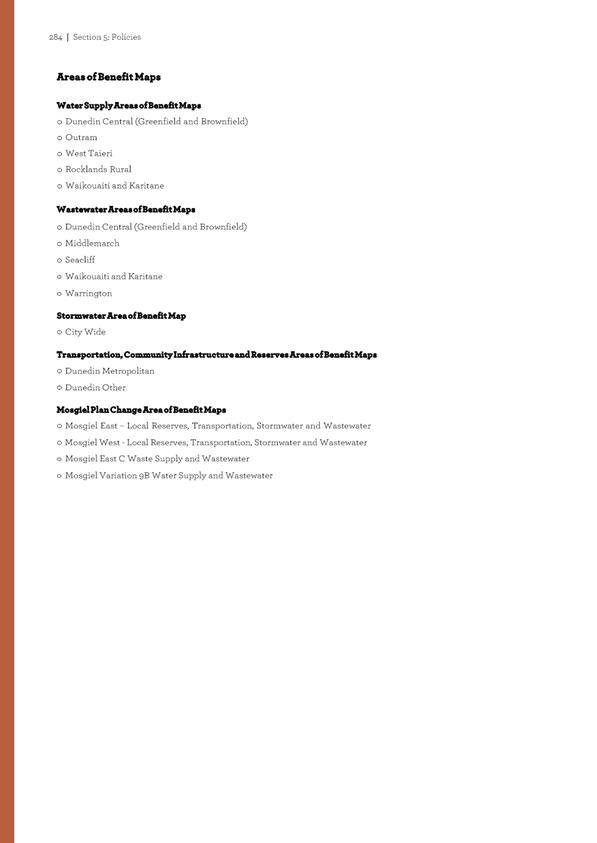
|

|
Council
9 March 2021
|
LGNZ Conference 2021
Department: Civic
EXECUTIVE SUMMARY
1 The Local Government New Zealand (LGNZ) 2021 conference is to be
held in Blenheim from 15 to 17 July 2021.
2 The
purpose of this report is to seek approval for attendance at the
conference.
3 As
this is an administrative report there are no options or summary of
considerations.
|
RECOMMENDATIONS
That the Council:
a) Approves the attendance of Mayor Aaron Hawkins,
Crs Christine Garey and Chris Staynes as the Dunedin City Council’s
Zone 6 representatives to the LGNZ Conference in July 2021.
|
DISCUSSION
6 The
Council's policy on attendance at Local Government New Zealand conferences is
that representatives should consist of the Mayor, two Councillors and the Chief
Executive (or alternate).
4 For
some years the policy has been applied so that the Councillor delegates have
consisted of the Council's LGNZ Zone 6 representatives (currently the Mayor and
Councillors Garey and Staynes), and it is recommended that these elected
members should attend this year.
OPTIONS
5 There
are no options for this report.
NEXT STEPS
6 The
approved members will be registered to attend the conference.
Signatories
|
Author:
|
Lynne Adamson - Governance Support Officer
|
|
Authoriser:
|
Clare Sullivan - Team Leader Civic
|
Attachments
There are no attachments for
this report.
|

|
Council
9 March 2021
|
Resolution to Exclude the
Public
That the Council excludes
the public from the following part of the proceedings of this meeting (pursuant
to the provisions of the Local Government Official Information and Meetings Act
1987) namely:
|
General subject of the matter to be considered
|
Reasons
for passing this resolution in relation to each matter
|
Ground(s) under
section 48(1) for the passing of this resolution
|
Reason for
Confidentiality
|
|
C1
Review - DCC Treasury Risk Management Policy
|
S7(2)(h)
The
withholding of the information is necessary to enable the local authority to
carry out, without prejudice or disadvantage, commercial activities.
|
S48(1)(a)
The public conduct of
the part of the meeting would be likely to result in the disclosure of
information for which good reason for withholding exists under section 7.
|
|
This
resolution is made in reliance on Section 48(1)(a) of the Local Government
Official Information and Meetings Act 1987, and the particular interest
or interests protected by Section 6 or Section 7 of that Act, or Section 6 or
Section 7 or Section 9 of the Official Information Act 1982, as the case may
require, which would be prejudiced by the holding of the whole or the relevant part
of the proceedings of the meeting in public are as shown above after each item.



































































































































































































